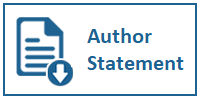THE IMPACT OF E-BANKING SERVICE QUALITY ON E-BANKING SATISFACTION AND E-BANKING LOYALTY
DOI:
https://doi.org/10.31937/manajemen.v16i1.3665Abstract
Abstract - The usage of online payment is increasing rapidly worldwide. The increasing digitalization has led to the gradual integration of online banking services into the modern marketplace, catering to customer needs. The study aims to understand the impact of e-banking service quality on e-banking satisfaction and e-banking loyalty. Researching how e-banking satisfaction and e-banking loyalty can be achieved through e-banking service quality will help banking sectors survive in competitiveness. A quantitative methodology was used as a research design. The propositions of the study were tested using Structural Equation Modelling-Partial Least Squares (SEM-PLS). Google Form with 157 respondents was used to collect the data. The study found that there's a positive significant influence between privacy & security, as well as a positive significant influence between website/app design with e-banking satisfaction. However, there's no significant influence between reliability and customer service & support with e-banking satisfaction. Findings indicate that privacy & security and website/app design play a very important role in achieving customer satisfaction as it has become the basis of customers interpret and interacts with online banking. This research adds up considerably to the literature of bank marketing, and also academicians since it demonstrates the way internet banking service quality determinants predict e-satisfaction which ultimately raises the e-loyalty of users. This study contributes to the existing literature on e-banking service quality and provide valuable insights for e-banking businesses in Indonesia.
Keywords: Cognitive Motivational Relational Theory (CMR); Customer Service & Support; e-Banking Loyalty; e-Banking Service Quality; e-Banking Satisfaction; Reliability; Privacy/Security; Website/App Design
Downloads
Downloads
Published
How to Cite
Issue
Section
License
Authors retain copyright and grant the journal right of first publication with the work simultaneously licensed under a Creative Commons Attribution-ShareAlike International License (CC-BY-SA 4.0) that allows others to share the work with an acknowledgement of the work's authorship and initial publication in this journal.
Authors are able to enter into separate, additional contractual arrangements for the non-exclusive distribution of the journal's published version of the work (e.g., post it to an institutional repository or publish it in a book), with an acknowledgement of its initial publication in this journal.















